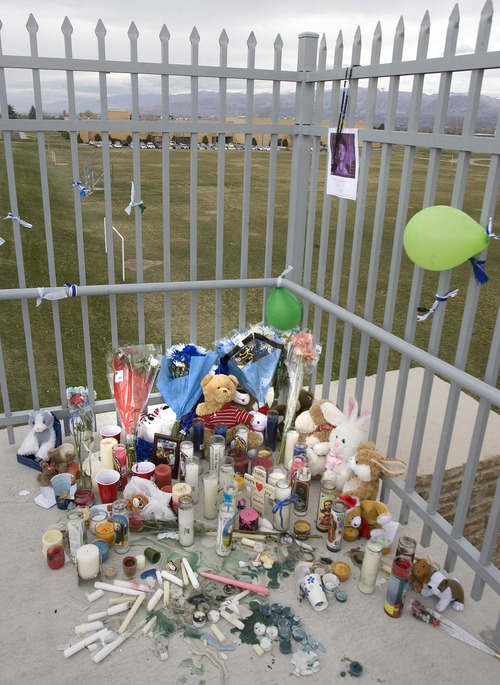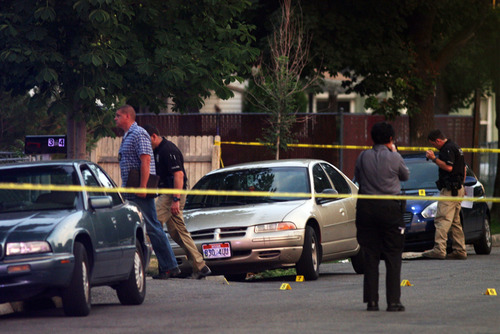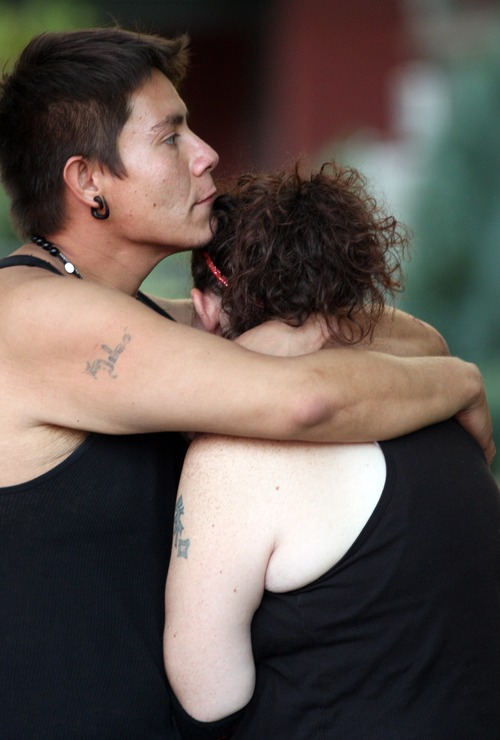This is an archived article that was published on sltrib.com in 2012, and information in the article may be outdated. It is provided only for personal research purposes and may not be reprinted.
Guns — or people firing guns — are killing more Utahns than they used to, and injuries from bullets are costing Utah more money.
Data from the Utah Department of Health show gun deaths from 2007 to 2011 were 23 percent higher than from 2001 to 2005.
Guns are expected to kill more Americans than cars do by 2015, according to a recent report by Bloomberg News using data from the Centers for Disease Control and Prevention, but Utah is ahead of the trend.
For 2007 to 2011, the Utah Highway Patrol reported an annual average of 263 automobile fatalities. In those same years, the Utah Department of Health says Utah averaged 271 gun deaths annually.
Of those, suicides accounted for 84 percent of gun deaths, the health department says, a slight increase from the years 2001 to 2005.
That last statistic has caught the attention of the Utah Department of Health and a statewide coalition whose mission is to prevent suicides.
Teresa Brechlin, the violence prevention coordinator for the health department, said the coalition is preparing a new anti-suicide campaign. One aspect of the campaign will be to identify people at risk of suicide and limit their access to "lethal means," including guns and drugs, Brechlin said.
"We're not going to say we need to limit gun ownership," Brechlin said. Instead, she said, that portion of the program will discuss "things like gun locks, gun safes, limiting firearms for people with mental health issues."
State law prohibits gun possession for anyone ruled incompetent by a court or ever committed to a mental institution, but there's no prohibition for anyone suffering from more common mental illnesses, such as depression.
Studies, including some cited on the Utah Department of Health website, link the availability of guns in homes to increased rates of suicide and other forms of violence.
There is good news in Utah's gun death statistics. Bad guys with guns are killing fewer people. Homicides with a gun declined slightly to about 30 killings per year in 2007 to 2011.
But there are other statistics suggesting guns are a public health problem in Utah. Data from the Utah state medical examiner compared with Census Bureau statistics show guns in Utah kill 11 of every 100,000 people annually. The Centers for Disease Control last year reported a national average of 10.4 gun deaths per 100,000.
Gun injuries are getting more expensive, too. The Department of Health reported hospital charges for firearm injuries in Utah were over $22 million, for an average of $45,800 per patient, from 2007 to 2011.
For the 2001-05 span, the cost was $12.4 million or $25,700 a patient. The charges include public and private costs.
Therese Richmond, research director of the Firearm and Injury Center at the University of Pennsylvania, said the idea of restricting gun access for people experiencing mental health problems is a good immediate step to reduce gun deaths. Richmond also favors requiring background checks on all gun purchases.
But Richmond also said more research needs to be done before determining other ways to reduce gun deaths in Utah and elsewhere. And there needs to be a government agency in charge of collecting data and research, Richmond said. No existing government agency has that task.
"If you really want policies, you want policies driven by data," Richmond said.
Clark Aposhian, chairman of the Utah Shooting Sports Council, opposes increased background checks and waiting periods.
"How is a background check going to clear somebody who has an occasional or a one-time suicidal thought?" Aposhian asked.
Mark Rosenberg, president and CEO of the Task Force for Global Health in Atlanta, agreed individual efforts to remove guns and other lethal devices from suicidal people may help reduce Utah's suicide numbers. Rosenberg also favors waiting periods for firearm purchases to reduce impulsive decisions to commit suicide and gun violence.
"Each one of these problems are preventable," Rosenberg said. "The people of Utah don't have to put up with this problem, and they don't have to bear these costs."
Twitter: @natecarlisle







